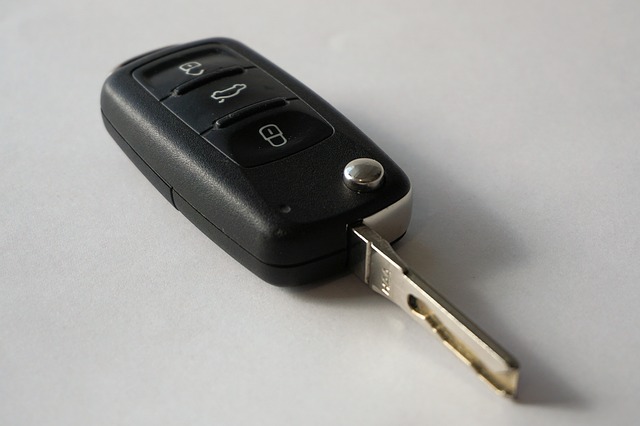
Picture this: You were out for the night with friends and everyone was drinking – including you. But out of everyone, you drank the least. So, you drove home.
Or maybe you didn’t even pull out of the parking space. You put the key in the ignition, turned it, realized you should not be driving, and sat with the car idling. And fell asleep.
Or maybe you drink frequently – and often – and feel that you can handle the short drive home from the neighborhood bar without any problems.
All of these scenarios have the potential to end the same way, with you being arrested for drinking and driving. Suddenly, a fun night out turns into something very serious. You might go to jail, you will probably lose your license for some time, and you will certainly have to pay fines – a lot of fines. Plus, this one action – drunk driving – can negatively affect your driving record, your bank account, your career, and life in general for years to come.
If you find yourself in this situation, you are going to need help. The laws governing drunk driving are complicated and the stakes are extremely high. You have the right to represent yourself in court, but in a situation with such serious consequences, doing so is not recommended as you would not be aware of viable defenses or the ways to minimize the consequences. This puts you at a severe disadvantage in the courtroom.
The answer? You are going to need a lawyer.
What happens after a DUI conviction?
In short, a driver convicted of driving while intoxicated, either by alcohol or drugs, will be subjected to fines, a suspended licensed, jail time, and increased insurance premiums. Also, a DUI conviction will appear on any future criminal background checks.
What can a lawyer do for you?
It is possible, although not easy, to have a DUI/DWI charge dismissed. A lawyer who is experienced with DUI cases will know what to do, including some of the following:
- Challenge the validity of the stop: This is the most effective and commonly used strategy for having charges dropped. Did the officer have reasonable suspicion to pull you over? For example, if he or she watched you leave a bar, get into your car and drive away, that is not reasonable suspicion. Were you speeding, driving erratically or weaving in and out of traffic? Did your car have a broken taillight? If not, anything that happened during the stop may have been obtained unlawfully.
- Challenge the integrity of the equipment: After a driver suspected of being intoxicated is pulled over, a police officer administers a test that measures the driver’s blood alcohol level. A lawyer can challenge the reliability of these results. Was the breath test machine properly maintained? Was it properly calibrated to produce accurate readouts? If blood was drawn, was the paramedic or technician who did so properly trained? If the answer to any of these questions is no, the results can be dismissed.
- Challenge field sobriety test results: There are three tests police officers rely on to determine a person’s sobriety: the walk and turn test, the one-leg stand, and the horizontal gaze nystagamus. As these are performed by the officer, a lawyer can challenge the results based on the potential for human error: Some studies say the one-leg test is inaccurate 35 percent of the time and the walk-and-turn test approximately 30 percent of the time. Also, if the driver has a disability that affects their balance, walking, or sight, this can affect field sobriety tests. Or, if the lighting was poor, the weather conditions were bad or the driver was wearing poor footwear, the results could be inaccurate.
Other ways to challenge a conviction:
The actions listed above are three of the most common ways a lawyer can challenge a conviction. The following are also possibilities:
- Did the officer advise the driver that he or she had the right to acquire an independent breath or blood test? If the state in which the driver resides requires the officer to do so, the state’s test may be void.
- In most states, unless the actions of the intoxicated driver resulted in death or serious injury to another person, forcible blood draws are not permitted. If blood was drawn without consent, the results could be dismissed.
- The breath test is designed to capture what is called alveolar air, or air from deep in the lungs. If a driver charged with driving while drunk suffers from heartburn, acid reflux or a digestive disease called GERD, these can create “mouth alcohol,” which can cause a false high test result.
- Isopropyl alcohol versus ethyl alcohol: The first is produced as a result of certain diets, the second comes from alcohol. The presence of isopropyl alcohol can negatively affect a breath test.
- The rising blood alcohol defense: It can take the body between 50 minutes and three hours to absorb alcohol. If the driver’s body was still absorbing alcohol when the breath test was administered, the result can be higher than it would if he or she was tested when they were behind the wheel.
- Proving you were driving: This defense is not possible if the police officer’s body or car camera captured the stop, but if the driver was involved in an accident and no one witnessed them driving, the prosecution would have difficulties proving they were behind the wheel.
As you can see, challenging a DUI conviction is complicated and difficult, made even more so by laws that often change. An attorney who specializes in DUI law understands these complexities and provide the best defense. Drivers facing these charges should meet with several lawyers; most offer free consultations. Bring your police report, all related documentation, and a list of questions, and don’t be afraid to ask them.
Questions to ask a DUI lawyer
- Where did you attend law school?
- How long have you been practicing?
- How many DUI cases do you take on each year?
- Are you familiar with the prosecutor on my case?
- How often do your cases go to trial?
- How much of your workload is dedicated to DUI cases?
- How can I contact you?
- How often will you update me on my case?
- Do you bill by the hour?
- What is included in your fee?
- Can I contact a few of your former clients?
Being arrested for and charged with drunk driving is scary; choosing the right lawyer can help.


